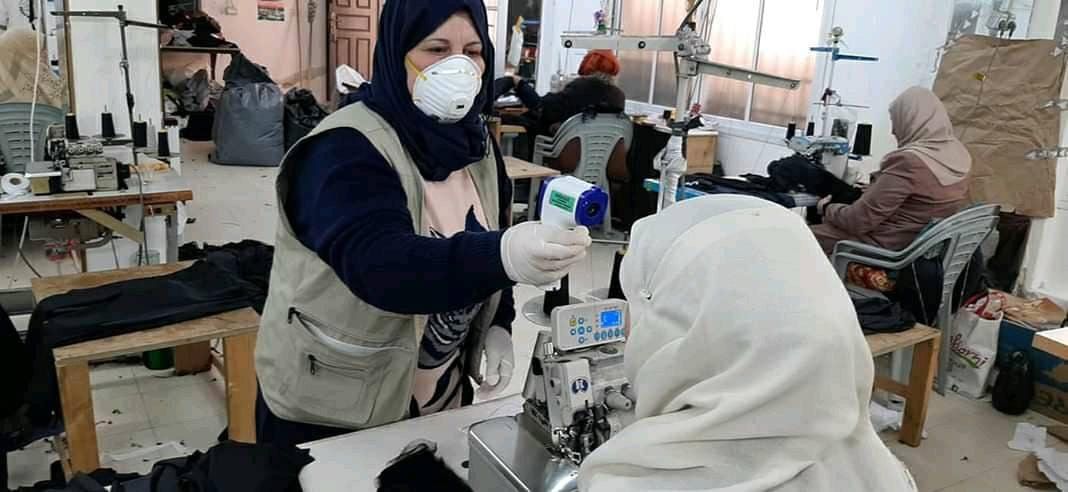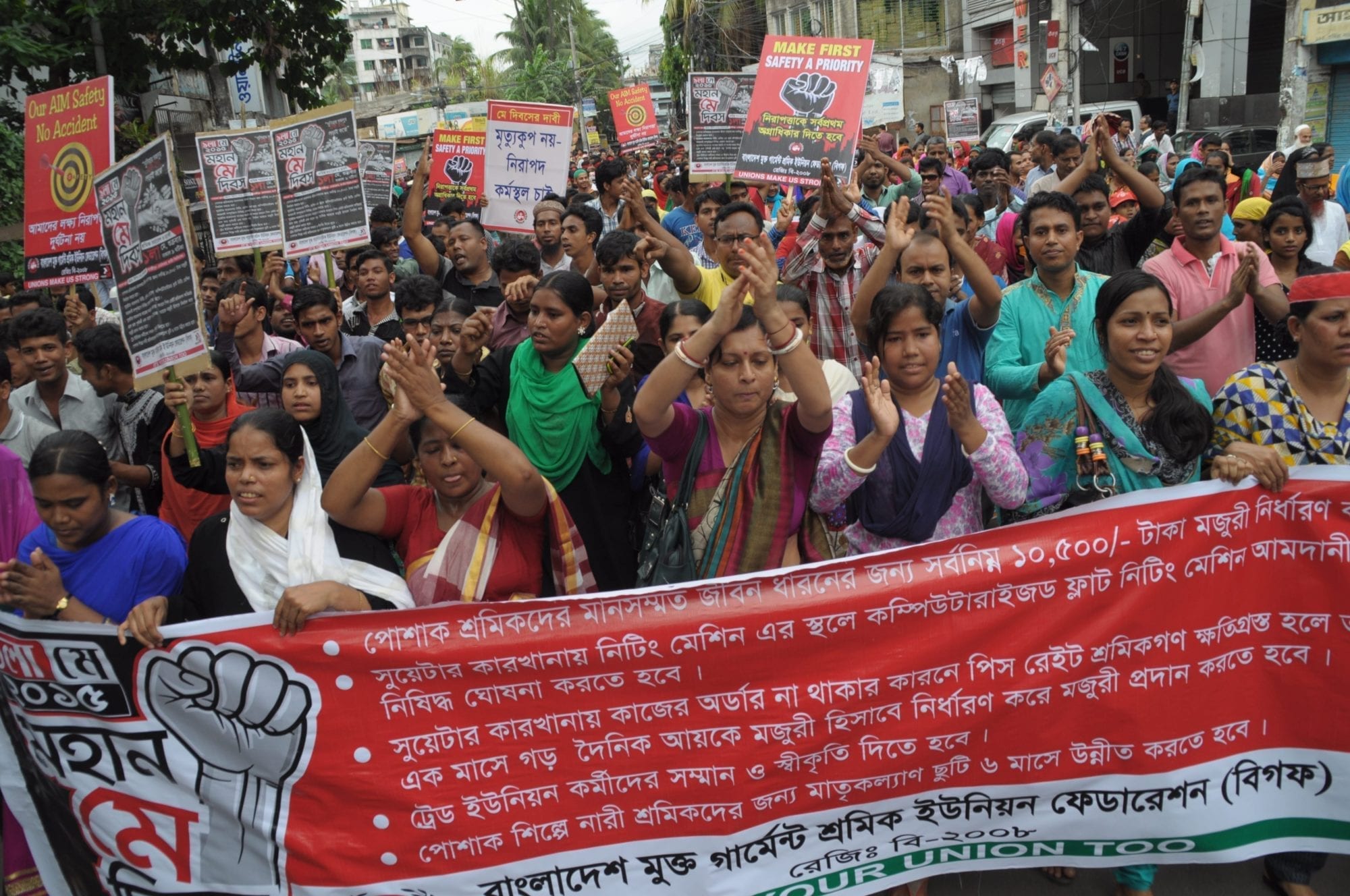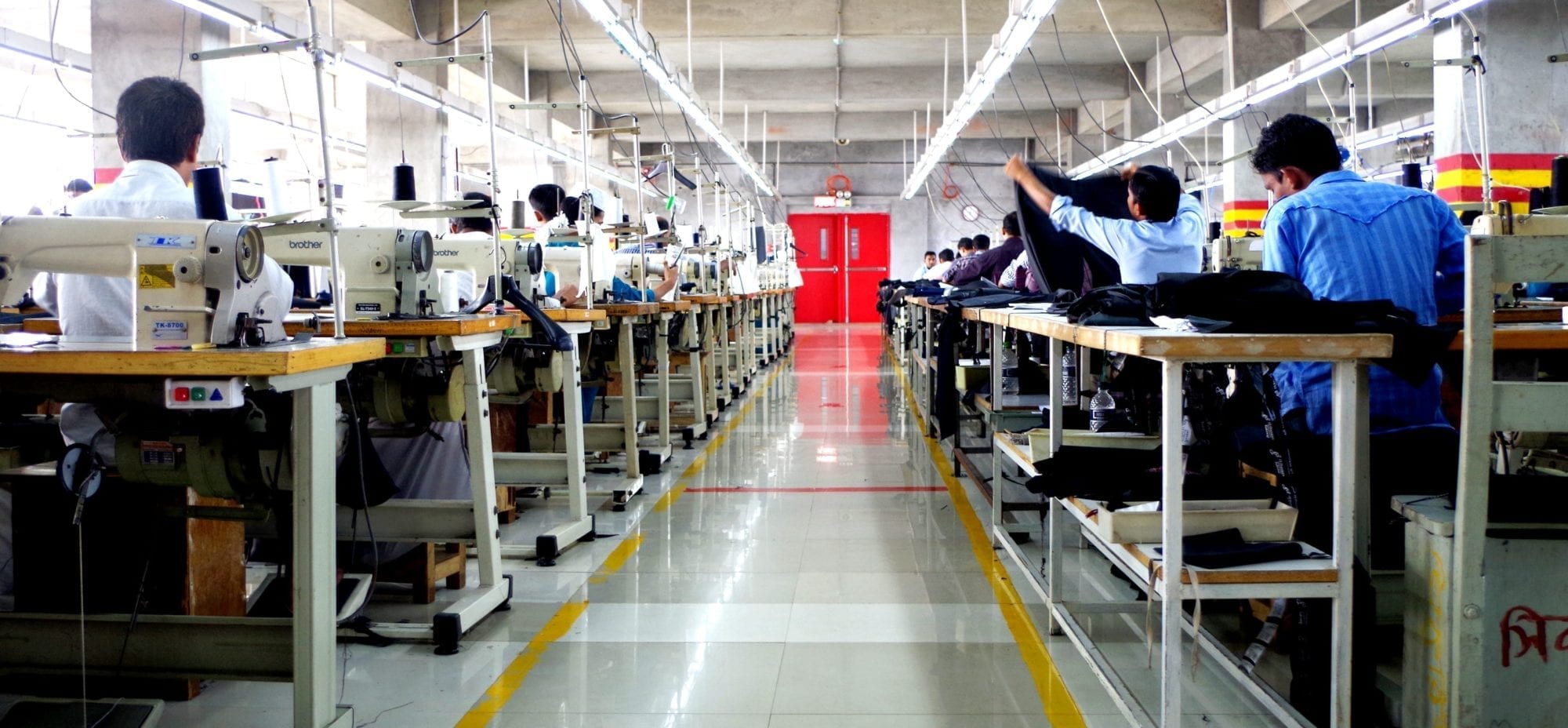The three-year anniversary of the November 24, 2012, fire that killed 112 Bangladesh garment workers at the Tazreen Fashions Ltd., factory offers a time to reflect on garment workers’ ongoing struggle for workplaces where they will not be killed or injured and for...

During the COVID-19 pandemic, members of the Palestinian General Federation of Trade Unions, a Solidarity Center partner, tested workers for fever. Credit: PGFTU
El Salvador Embroidery Workers Defy Odds to Form Union
In isolated rural areas across El Salvador, thousands of women work from their homes hand-embroidering intricate patterns on pieces of cloth they later return completed to factories to be sewn into finished garments. To meet the factory’s production deadlines, the...
Dying for a Job: Commemorating the Anniversary of the 2012 Tazreen Factory Fire
Four million garment workers, mostly women, toil in 5,000 factories across Bangladesh, making the country’s $25 billion garment industry the world’s second largest, after China. Wages are the lowest among major garment-manufacturing nations, while the cost of living...
No Results Found
The page you requested could not be found. Try refining your search, or use the navigation above to locate the post.



